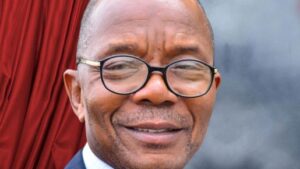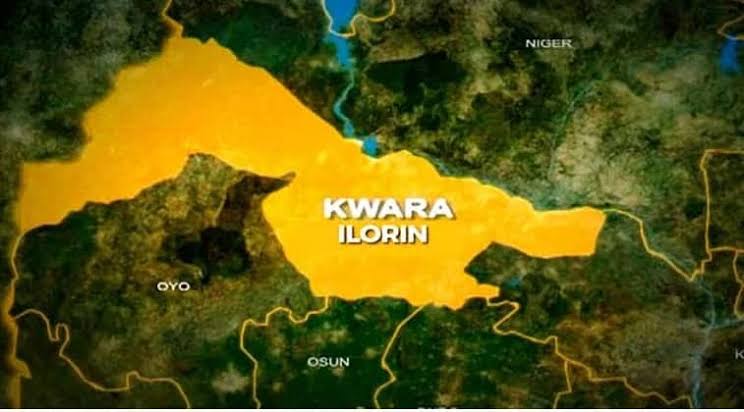
Outgoing vice chancellor of Osun State University, Osogbo (UNIOSUN), Prof.Labode Popoola, in this interview with IYABO LAWAL deplores the rot in the nation’s ivory tower, calling on anti-graft agencies to beam their searchlight on university administrators. He also reviewed his performance in the last five years and concluded that he is leaving the institution better than he met it and as a fulfilled man.
By November 4, your tenure as vice chancellor, Osun State University will end. How has the journey been?
Well, it is like every other journey. You have the good, the bad and the ugly. But all said and done, I want to believe that we are leaving behind a better university than we met. Frankly speaking, I did not inherit a university in the real sense of it. The university I inherited was such that anything goes. It was a university in name, but the academic culture was completely missing. It was a university where commercialisation of everything was the norm; where law and order was not a culture and corruption was the order of the day. I guess it happens in other institutions as well, but the autonomy we enjoy is like a veil that prevents the public from seeing those infractions.
It was really tough at the beginning and of course, we are always reminded that trying to reform will always come second. We really had obstacles. We were always in the news for the first one and half years, fighting unnecessary and needless battles, but we overcame them.
I want to give credit for this victory to the kind of principal we had and still have. I had a visitor then, former governor, Rauf Aregbesola, who understood what a university should be and gave us the free hand to run it. I also had a council and still do, which knows what a university should be and believes in the kind of serious reform we needed to have.
As tough as it was in the first 18 months, things moved on gradually. At a point in time, I wanted to resign and go back to the University of Ibadan (UI), but I recalled that some good members of the council prevailed on me to stay. I also recalled that Aregbesola called me and told me that I was on a mission and not going anywhere. So that’s what kept us going and since November 2018 when we had the peak of the ‘madness,’ we have been at the crescent level and it has been wonderful. Now, we have what you can call a university.
That is why we engaged them in leadership training. If we had just succumbed to the quest for student union leadership, probably we would have ended up with the same problems other universities ended up with. But like I said, we engaged them for three years, by bringing in experienced resource persons to train them. We first got the constitution of the student union ready. We did that by allowing them to think out the constitution and we went through it together before adopting it. Then, we gave them the free hand to elect their leaders, which they did without rancour. But there’s one thing we also did. We put in the constitution that anyone that would emerge as president must be at the verge of having a first class. The first president was from electrical engineering, who was clearly a first class student. So, it was not a question of an all-comers affair. The best among them were selected.
Talking about corruption, some human rights groups have called on anti-graft agencies to beam their searchlight on universities, alleging deep rot in the system. What do you think about this call?
Corruption in Nigerian universities is huge and I’m saying this boldly because I know. I was a ‘customer’ at the Economic and Financial Crimes Commission (EFCC). I make bold to say that never in my life have I ever given or taken bribes. That’s the simplest form of corruption. I’ve never done that and yet, petitions were written against me by people who are corrupt, who were doing it and I blocked the leakages. Infuriated, they wrote petitions against me, first to the council of the university, and then to EFCC.
The commission investigated me for six months. I was expecting an outcome but there was nothing. The vindication eventually came when they decided to sue EFCC because the anti-graft agency did not indict me.
These are corrupt people, who were sleazing the system. Because I resisted them, they went all the way, but as God would have it, they went to court and the high court threw out the case. It was only then I knew what transpired in EFCC. The agency told the court that it investigated me and found nothing and refused to be used as an instrument against a Nigerian citizen.
Back to your question, there is corruption in the nation’s ivory tower. People who were depending on the system illegally but because there’s resistance against their atrocities, they fought back so that I could be removed.
When I resumed, a professor came to my office and brought a document for me to sign, saying the Internally Generated Revenue (IGR) should be shared among some professors and people, and I asked why that should happen. They said here, we share 25 per cent of IGR and I asked if they don’t receive salaries. They told me that they worked for it. I asked them how they worked for it. I refused to sign it and you can imagine what such people would feel about me. So, I can say of this university that there was corruption and there is corruption in the university system in Nigeria.
The EFCC and councils should beam searchlights on the university system. Our unions always complain about poor funding. But the question is: what have we done with the little we have received? Since I got here, at least I have got over N3 billion from the Tertiary Education Trust Fund (TETFund), which is a government agency.
Yes, it’s true that the government cannot fund education enough. But there are some universities that got more than that, particularly federal universities. We should ask, the society should ask: what have we used this money for? I can account for every kobo that came in during this tenure.
Society should be interested; security agencies and our principals should be interested in the way universities are run. We are not saying that they should interfere but they should be able to look into our books, into our performance, into the way we utilise resources that have been entrusted to us. That is not happening in every university. There is collusion. Why should a project that should cost N50 million cost N250 million?
You once gave a lecture where you faulted the curriculum being used in tertiary institutions, what has changed between now and then?
There are some basic things in the curricula that would never change but environment changes. How are we reacting to these changes? When we talk about unemployment, how are we reacting to it in the way we teach economics or entrepreneurship? If you are teaching biology or physics, how are you bringing in values in terms of character, conduct in the society, how somebody can be useful to himself and the society? Those are the issues!
I think a lot has changed and I want to give kudos to the National Universities Commission (NUC). As we speak, there is a lot of transformation going on in the curricula of universities in this country. The other thing is attitude. You can have good curricula but what about attitude of teachers and students? All in all, I think there are improvements but it can be better.
Talking about unionism, most vice chancellors usually have running battles with staff unions, thereby disrupting the peace on campus. What is your relationship with the various unions in the institution?
Of course there are four major unions in the university system. I have had the privilege of working in the university system for over 30 years, and I know that there are three scenarios, when there is peace between the unions and management. It means there are some things going on between them.
It can also mean that the leadership of the union is reasonable and sympathetic to the cause of the university. When there are crises, it could mean the vice chancellor is not doing what he’s supposed to be doing, or the expectations of the union leadership are not being met. When I say expectations, I don’t mean workers welfare because that is what unions are for. It means their expectations are not being met by the vice chancellor.
Having said that, unionism in this country has become personalized. A union leader feels that he is in a position to get things for himself using the number of workers. Even when he or she is fighting a selfish course, he does it in the name of unionism. We had a scenario where somebody had a case to answer but because he didn’t want to answer the case, he mobilised in the name of the union. Now, the workers know better that he was not fighting their cause. They know that 25th of every month or earlier, their salaries are paid. The staff members know that their promotions are not delayed. They know that their entitlements are not withheld but there is need for unionism in every system because of workers welfare and to checkmate the excesses of management. In the absence of that, there shouldn’t be any agitation. So, my own opinion is that people should not turn unionism into a weapon, weaponising unionism, using it for selfish purposes, which is what you have in many scenarios in this country.
Every year, we have been able to attract eminent individuals to the university globally.
Universities are meant to be solution agents; unfortunately, they are still subjected to same problems the larger society is battling with. Why have Nigerian universities fail to effectively solve those basic problems, for instance why can’t universities generate their own electricity so that the society can even benefit?
Universities are supposed to be solutions agents, even at the United Nations level, there is a network called sustainable development solutions network and membership is about universities. I’m a member of the leadership council and director for Nigeria. So, I believe that universities should be solution providers, but you need to belong to a social media platform where university operators are. We complain the most about everything. We are the ones that complain about roads, electricity and health among others.
Two institutions hold countries in place, the military and university system. When there are problems, those are the two institutions in charge; unfortunately, we are not doing very well in that area.
Why can’t universities generate their own power? It may not be 100 per cent; but there should be evidence that the university is able to do something, which is what we are doing here. Streetlights were installed by our engineering students, we didn’t have to give a contract to get that done, we have our students engaged in entrepreneurship, learning some trades that will stand them in good stead in the larger society. Instead of complaining about unemployment, they should be able to go out there and create jobs instead of becoming a burden to society.
We have been able to put in place a loan scheme; we call it start-up fund, for our students. Instead of our students graduating and complaining of no job after school, we give them N200, 000 loan with one per cent interest rate payable over a period of five years. If you are an alumnus, you can have that and many of them are taking advantage of that.
Universities should be solution providers; unfortunately, we are the one complaining the most, which should not be.
There are fears that due to inadequate funding of the public university system, private universities may take over. What do you think about this?
Government cannot fund education alone, parents must pay, government must play its role, civil society groups and philanthropists must also come in. We can have a loaning scheme. In other parts of the world, many students run on loans and pay back by signing a bond that once they complete their education, they are going to work for the government for a period of time.
The idea of less-privileged is wrong, tertiary education is not compulsory, there are people who never went to universities and are doing well. Let us be serious about funding education because the government cannot do it alone. For public universities, we say it is cheap but how cheap is it? For a four-year programme, you spend six-seven years, in the final analysis; it’s almost the same. We must be ready to pay something, let’s stop this idea that there is free education anywhere.
Five years down the line as VC, do you feel fulfilled?
Largely fulfilled, I applied for the job and out of 23 candidates; I came first with a gap of 30 points. It means I put an assignment on my head; I had a vision and mission document, every now and then I go to that document to see what had been done. I want to say that over 90 per cent of things that I willingly wrote that I would do had been done. If that is a measure of fulfillment, that is my description of it.
UNIOSUN of 2016 is not the same as that of 2021 for several reasons, when I came here; the institution was number 37 in Nigeria and now 29. I don’t know when the next ranking will be out, but I know we will slightly move higher.
What is your take on increased cases of sexual harassment and sex-for-grades in tertiary institutions? Are there such cases in UNIOSUN?
The major one here is still in court, so I need to be very careful the way I comment on it. I inherited the case of a lecturer involved in such. There was a video recording of an incident between a lecturer and student. It was scandalous and the matter is still in court. The lecturer was dismissed and there were similar others.
But one good thing we did was that we put in place sexual harassment policy to address the problem. The policy clearly states what sexual harassment is and how we can detect it and the penalties. That actually sent some jitters and largely, we have not seen reported cases of such.
A MUST TO READ
For your Advert Placement, Publicity, Press Release, Personality Promotion, Special Report, Featured story, Conference, Interviews, And So On – CONTACT US on WhatsApp/Call📞@ 08072633727 📲
NOTE: We wish to add you to our WhatsApp Database to get our Trending, latest and timely news directly into your WhatsApp Box as the news breaks.



